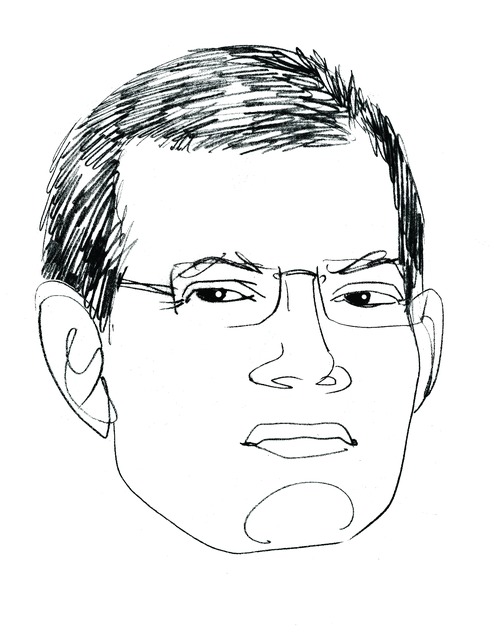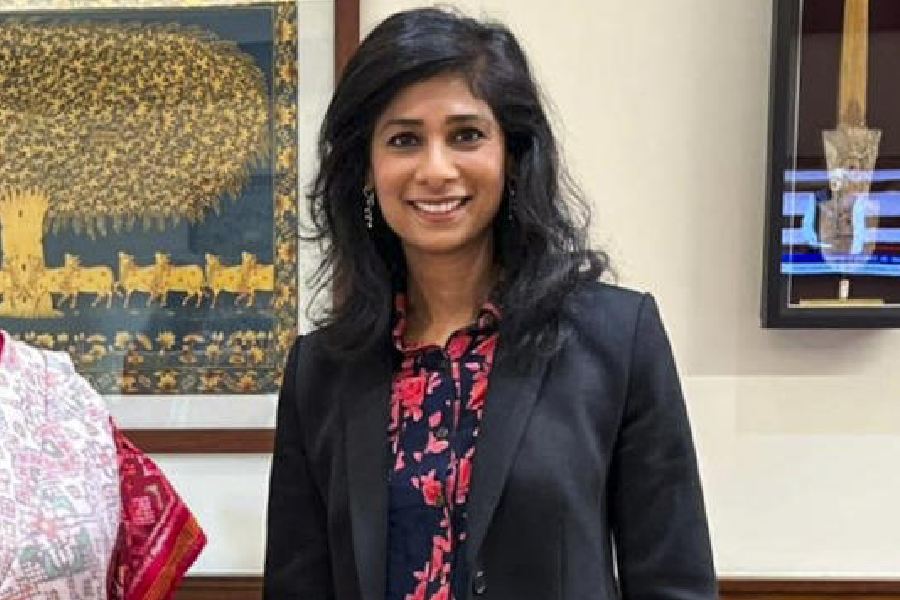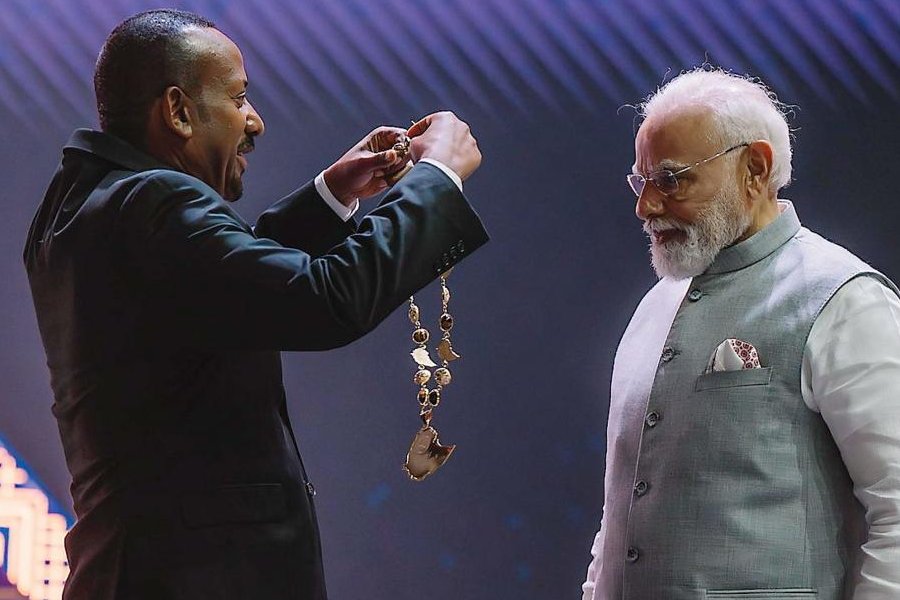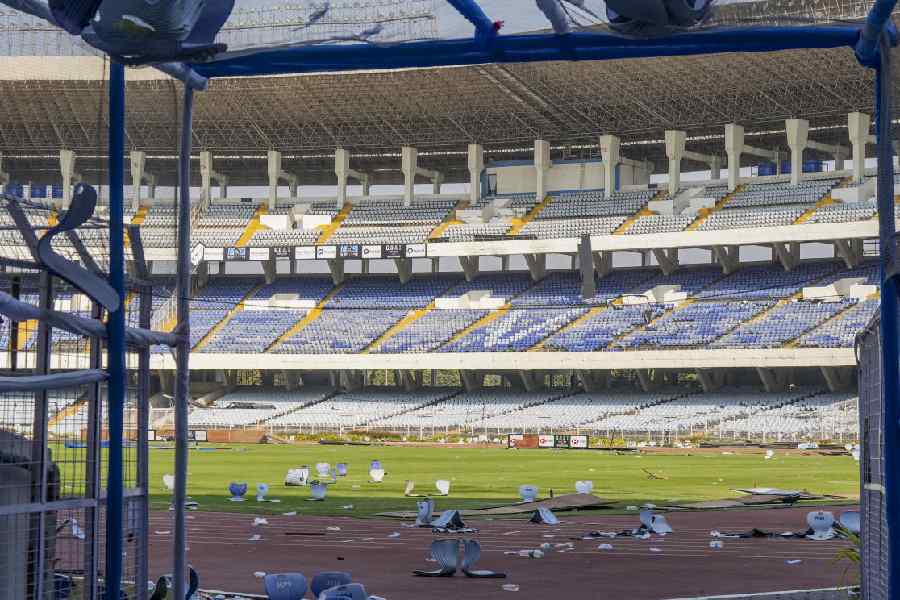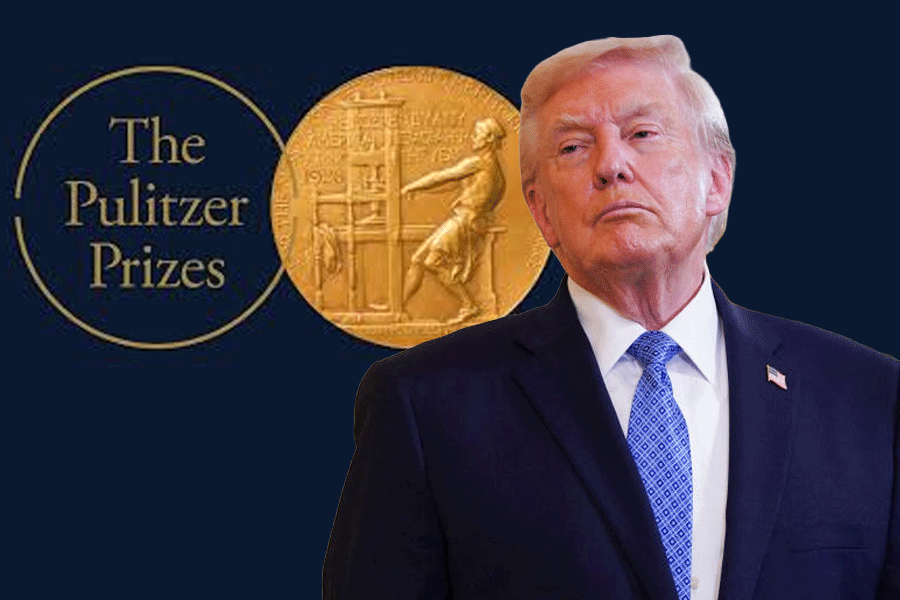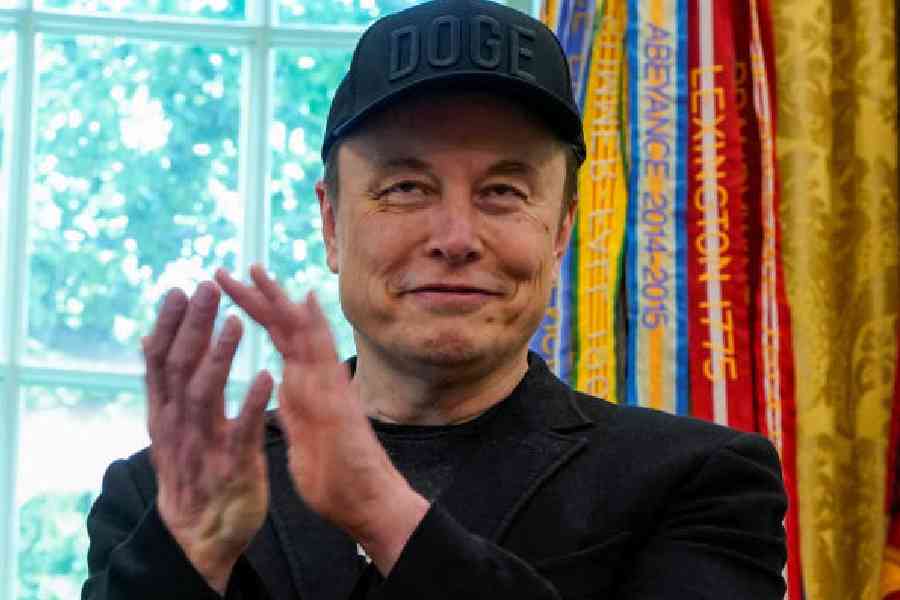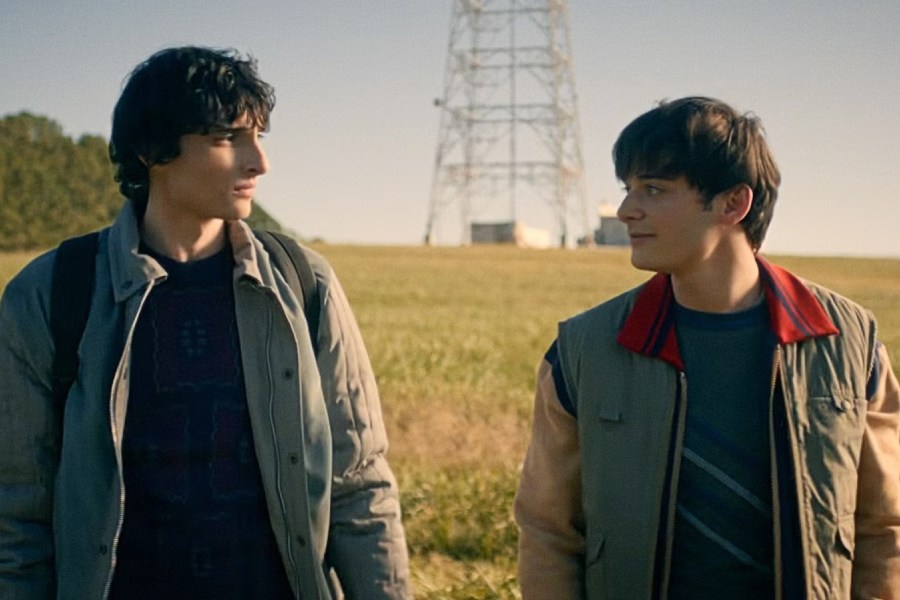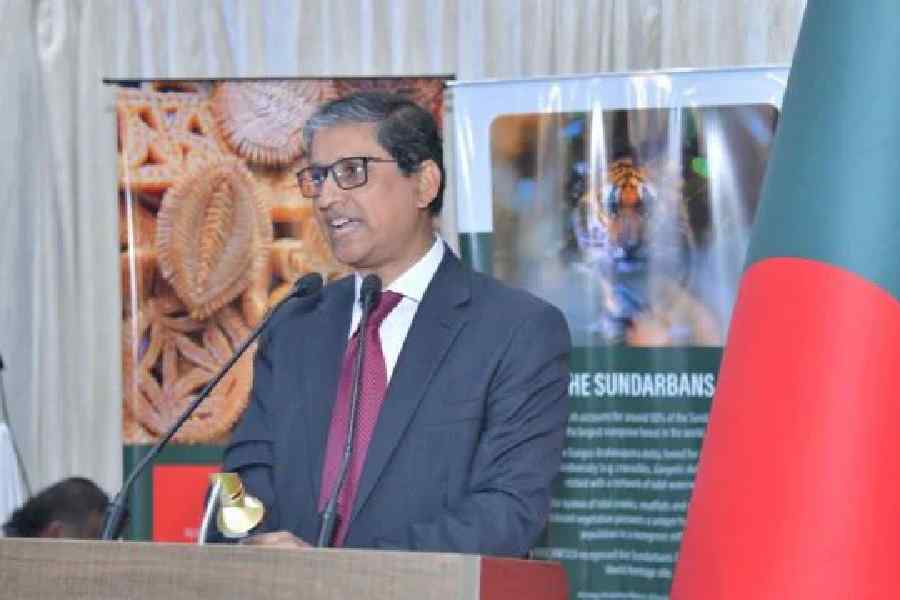
He was known as the first rockstar President of the Maldives - Western educated, suave, crisply-turned out, espousing liberal values in an Islamic state, a visage that sometimes reminded some of a likeness to Barack Obama. Mohamed Nasheed caught attention easily. But not always where he wanted it most. He has the ears of the West thousands of miles away but has failed to cast a spell on his immediate neighbour, India. Former British Prime Minister David Cameron calls him "best friend"; Indian Prime Minister Narendra Modi has so far ignored him. But Nasheed hasn't given up; he wants Modi to listen to him.
"I would try to tell Prime Minister Modi that the people of the Maldives are suffering under an autocratic government run by President Abdulla Yameen. We would like him to understand the fears of the people of Maldives," Nasheed, 49, chief of the Maldivian Democratic Party, tells The Telegraph from Colombo over Skype.
So far, his plea has gone unheard in Delhi. Modi seems to be moving closer to Nasheed's rival, Yameen. Last year, Modi signed a defence pact with the Maldives when Yameen visited Delhi. Indian diplomats say the deal was a bid to stem a growing Chinese influence in the Maldives. A major contract for the construction of Male's international airport, which was earlier given to Indian infrastructure company, GMR, got revoked and went to a Chinese company.
But Nasheed cautions India. "I don't think pandering to Yameen would make him averse to signing more contracts with China," he warns. "Yameen has given around nine islands to China and some of those islands are very crucial for India because of their geopolitical positioning."
Nasheed is frank enough to admit that these contracts to China will be tough to revoke even if he comes to power. Earlier, India suspected Nasheed of being receptive to China when a Chinese embassy was opened in Male in 2011 during his presidentship. "If we come to power, it's going to be very difficult to undo any sovereign contract that Yameen will engage in with any other country," Nasheed says. "We don't want to bargain between India and China. I don't want to blackmail a country into a negotiation or an action."
Nasheed was thrown out of power in a coup in 2012 by the former Vice-President, Mohammed Waheed Hassan. Hassan is known to be a crony of former President Maumoon Abdul Gayoom, who Nasheed defeated in 2008. A year after the 2012 coup, Nasheed had taken refuge for 10 days at the Indian High Commission in Male fearing arrest. That was the only time that an Indian government (the UPA at that time) has responded to his call for help.
Nasheed has been trying to drag India's attention to alleged cases of corruption, media repression and human rights violations by Yameen but to little avail. India's diplomatic outlook appears clear: it will not engage with any individual, it would engage with the country's official representative.
But Nasheed isn't giving up. He routinely briefs officials of the Indian High Commission in London, where he has been living in political asylum since last year. His party colleagues have been meeting experts at Indian security think tanks in New Delhi too. They are making all possible efforts to pursue the Indian government to create pressure on Yameen to allow Nasheed to fight elections next year.
Nasheed fears being arrested the moment he lands in Male because he has been sentenced to 13 years' imprisonment on charges of terrorism in 2015. Of the 13 years, he has spent only a few months in jail. Also, he is barred from fighting the polls on grounds of criminal conviction.
So he has joined hands with all opposition parties, including his long-time foe, Gayoom, the leader of the Progressive Party of Maldives and half-brother of President Yameen, to come back to power. When Gayoom ruled the Maldives with an iron fist for 30 years, he had had Nasheed arrested more than 20 times for his demand for democratic elections in the country. But now Nasheed appears to have dissolved his difference with Gayoom.
Together, with two other parties, Nasheed and Gayoom have created the United Opposition, which enjoys a majority in the Maldivian Parliament. They plan to move legislation for "free and fair" elections in which Nasheed can also participate.
Many believe Nasheed's alliance with Gayoom shows his desperation to come to power. But Nasheed, who signed the deal with the opposition parties in Colombo, begs to differ. "It's not my desperation. People are desperate to find solutions to problems of the Maldives and the onus is on us," he stresses.
But Nasheed has a problem: he isn't known as someone who can take everyone on board. In the past, when he was in power, he was accused of alienating the judiciary, the police, even parliamentarians. Key members of his government also resigned in sheer frustration.
Nasheed admits to learning lessons from the past. "This time, we cannot consolidate power within our own party. We must be ready to share powers with our allies," he asserts. During the two-and-a-half years he was in power, Nasheed's notion of "liberalising" the outlook of the country didn't go down well with his newfound allies; at the time, many saw him as a threat to "traditional Islamic values" in the Maldives.
Over the past five years, Islamic extremism has risen across the thousand-island nation 1,350 miles southwest of India with a population of 3,50,000. Some reports suggest the Maldives is the biggest per capita contributor to terror outfit ISIS. But if he comes back as president, Nasheed says he is determined to tackle extremism: "I must continue to show leadership in liberal acceptance."
Nasheed's concept of liberalism is largely borrowed from the West, where he grew up. He read at the UK's Dauntsey's School in posh Wiltshire, and later enrolled for maritime studies at Liverpool's John Moores University. His connections with the UK are deep. He has met Queen Elizabeth II and stayed at the Windsor Castle. But his Western ties don't stop at Britain's royals. Amal Clooney, celebrity international lawyer and wife to George Clooney, carries his brief. Nasheed's fight for democracy in Maldives also finds itself gloried in a documentary titled The Island President; it was made by Hollywood's Jon Shenk, one of the directors on the iconic Star Wars space saga.
As president, Nasheed's policies were largely influenced by the West. His economic policies were based on the International Monetary Fund model of capitalism. He was also hailed by the West when he conducted an underwater Cabinet in 2009 to highlight the threat of global warming to the low-lying Indian Ocean nation.
Despite receiving accolades from the West, his love for India hasn't diminished. His fascination for Indian cinema is deep. "I have been a fan of all the stars of the 80s - Amitabh Bachchan, the Kapoors and Mithun. I seem to keep going back to Abhimaan, Silsila and Kabhie Kabhie over and over again," he laughs, adding, "I can never forget Zeenat Aman and Poonam Dhillon." His exposure to Bollywood happened during his various trips to India as a teenager. On his first visit as a teenager, he travelled across India by train for four months. Later, as a politician too, he travelled to New Delhi and Bangalore several times; his last trip to India was in 2015. "I like living in India," he says.
A history enthusiast, Nasheed has authored three books on Maldivian history. A former journalist and an avid reader, Nasheed is currently reading Shashi Tharoor's An Era of Darkness: The British Empire in India.
Nasheed is a fitness freak too. He wakes up early and his 40-minute run is regimented. He is extremely careful about his lunch and dinner timings. A family man, Nasheed loves spending time with his wife, Laila, and two daughters, Mira and Zaaya, who study in a boarding school in England.
But then his life in UK is only transitory. He aims to be back home. "Soon," he insists. He compares his state of homelessness to what Salman Rushdie has mentioned in his book, Imaginary Homelands. "I am always imagining home and the condition itself is not easy. And I don't want to remain like this." For things to change faster for him, he has been trying to shore up support back home through social media, especially Twitter. He claims a large number of his 85.1K followers on Twitter are young men and women in their early 20s: "Successful politics in the 21st century is instant - on Twitter."
That's where he "met" Modi too. "Recently, Modi retweeted one of my tweets on democracy. I would consider that as our meeting," he says.
But perhaps he'd like to take a break from that virtual meeting and make it real.
tetevitae
Son of a businessman, the 1967-born Nasheed is educated in his own country, as well as Sri Lanka and Britain
He is in his 20s when he comes to be known as an outspoken critic of Maumoon Abdul Gayoom's regime
1991: Arrested for the first time for writing a magazine piece alleging that the government had rigged the 1989 general elections. Named Amnesty International prisoner of conscience thereafter
It is said that in the next 17 years, Anni - as he is popularly known - was arrested 20 times
2001: Tries to register the Maldivian Democratic Party but fails. Finally, he succeeds in 2005
2008: Elected president in the Maldives' first free polls, thus ending the 30-year rule of Gayoom
His presidency is not entirely smooth. And in 2012, he resigns
In 2015, he is awarded a 13-year prison sentence on terrorism charges. Shortly after, he asks to be allowed to travel to the UK for medical treatment. The UK has been his home since

